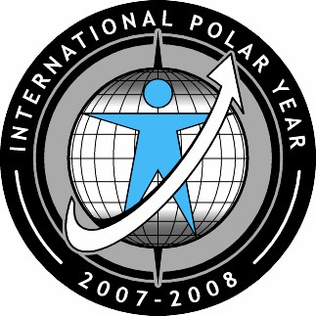
The International Polar Years (IPY) are collaborative, international efforts with intensive research focus on the polar regions. Karl Weyprecht, an Austro-Hungarian naval officer, motivated the endeavor in 1875, but died before it first occurred in 1882–1883. Fifty years later (1932–1933) a second IPY took place. The International Geophysical Year was inspired by the IPY and was organized 75 years after the first IPY (1957–58). The fourth, and most recent, IPY covered two full annual cycles from March 2007 to March 2009.
A postdoctoral fellow, postdoctoral researcher, or simply postdoc, is a person professionally conducting research after the completion of their doctoral studies. The ultimate goal of a postdoctoral research position is to pursue additional research, training, or teaching in order to have better skills to pursue a career in academia, research, or any other field. Postdocs often, but not always, have a temporary academic appointment, sometimes in preparation for an academic faculty position. They continue their studies or carry out research and further increase expertise in a specialist subject, including integrating a team and acquiring novel skills and research methods. Postdoctoral research is often considered essential while advancing the scholarly mission of the host institution; it is expected to produce relevant publications in peer-reviewed academic journals or conferences. In some countries, postdoctoral research may lead to further formal qualifications or certification, while in other countries, it does not.
Stuart Alan Rice is an American theoretical chemist and physical chemist. He is well known as a theoretical chemist who also does experimental research, having spent much of his career working in multiple areas of physical chemistry. He is currently the Frank P. Hixon Distinguished Service Professor Emeritus at the University of Chicago. During his tenure at the University of Chicago, Rice has trained more than 100 Ph.D. students and postdoctoral researchers. He received the National Medal of Science in 1999.
The American Society for Cell Biology (ASCB) is a professional society that was founded in 1960.

HASTAC (/ˈhāˌstak/'), also known as the Humanities, Arts, Science and Technology Alliance and Collaboratory, is a virtual organization and platform of more than 18,000 individuals and 400+ affiliate-institutions dedicated to innovative new modes of learning and research. HASTAC network members contribute to the community by sharing work and ideas with others via the open-access website, by hosting HASTAC conferences and workshops online or in their region by initiating conversations, or by working collaboratively with others in the HASTAC network.

University of Kurdistan is the largest university in Iranian Kurdistan Province, located in south of Sanandaj. The University of Kurdistan was ranked as the eighth top university in Iran in academic year 2007-2008 and was ranked as the first top developing university in Iran in academic year 2006–2007.

The Konrad Lorenz Institute for Evolution and Cognition Research (KLI) is an international center for advanced studies in the life and sustainability sciences. It is a "Home to Theory that Matters" that supports the articulation, analysis, and integration of theories in biology and the sustainability sciences, exploring their wider scientific, cultural, and social significance. The institute is located in Klosterneuburg, near Vienna, Austria. Until 2013, the institute was located in the family mansion of the Nobel Laureate Konrad Lorenz in Altenberg. Lorenz' work laid the foundation for an evolutionary approach to mind and cognition.
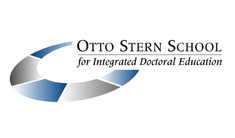
The Otto Stern School (OSS) is the platform for doctoral education in natural sciences at the Johann Wolfgang Goethe University Frankfurt am Main.

ICRANet, the International Center for Relativistic Astrophysics Network, is an international organization which promotes research activities in relativistic astrophysics and related areas. Its members are four countries and three Universities and Research Centers: Armenia, the Federative Republic of Brazil, Italian Republic, the Vatican City State, the University of Arizona (USA), Stanford University (USA) and ICRA.
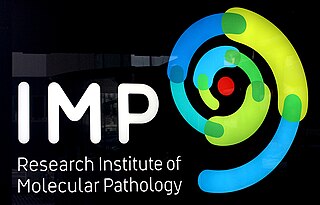
The Research Institute of Molecular Pathology (IMP) is a biomedical research center, which conducts curiosity-driven basic research in the molecular life sciences.

Informatics Europe is the European association of university departments and research laboratories, in the field of informatics.
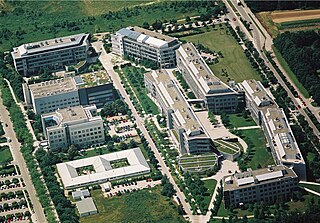
The Center for Integrated Protein Science Munich (CIPSM) is a cluster of excellence in sciences located in Munich. It is an association of research groups of the Ludwig Maximilian University of Munich, the Technical University of Munich, the Helmholtz Center Munich, and the Max Planck Institutes of biochemistry and neurobiology in Martinsried. Research at the center expands from isolated proteins up to proteins in living organisms applying methods of biophysics, biochemistry, medicine, and biology.
Brigitte Mühlenbruch is a German chemist.
Shree Somnath Sanskrit University (SSSU) is a public university located in Gujarat, India. It was created by the Gujarat State government through the Shree Somnath Sanskrit University Act in 2005 for the research and teaching of Sanskrit literature, with objectives to preserve India’s cultural and linguistic heritage. The main campus in Veraval is home to seven departments, or faculties, which, together with 110 affiliated colleges, research institutes, and centers across Gujarat, award nine different degrees, including B.A., M.A., and PhD, in a variety of fields. Shree Somnath Sanskrit University publishes a quarterly research publication, Somajyoti, and organizes regular workshops and conferences to promote discourse and research in Sanskrit language and culture.

The University of Public Service is a higher educational institution in Budapest, Hungary. Established in 2012, it is one of the youngest universities in Central and Eastern Europe; however, its faculties as former independent colleges look back much earlier.
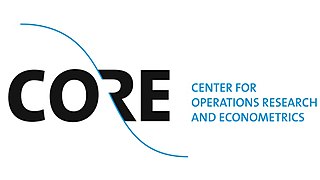
The Center for Operations Research and Econometrics (CORE) is an interdisciplinary research institute of the University of Louvain (UCLouvain) located in Louvain-la-Neuve, Belgium. Since 2010, it is part of the Louvain Institute of Data Analysis and Modeling in economics and statistics (LIDAM), along with the Institute for Economic and Social Research (IRES), Louvain Finance (LFIN) and the Institute of Statistics, Biostatistics and Actuarial Sciences (ISBA).

Michael Li is an American data scientist, entrepreneur, and the founder and Chief Executive Officer of The Data Incubator, a data science training and placement company.
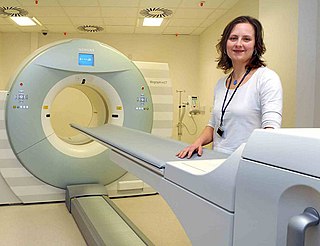
Heather Ann Williams is a British medical physicist working as a Consultant Medical Physicist for Nuclear Medicine at The Christie NHS Foundation Trust. She is also a lecturer in the Faculty of Biology, Medicine and Health at University of Manchester, as well as the University of Salford and University of Cumbria.
Vineet Bafna is an Indian bioinformatician and professor of computer science and director of bioinformatics program at University of California, San Diego. He was elected a Fellow of the International Society for Computational Biology (ISCB) in 2019 for outstanding contributions to the fields of computational biology and bioinformatics. He has also been a member of the Research in Computational Molecular Biology (RECOMB) conference steering committee.

Tabbetha A. Dobbins is an American physicist and an associate professor of Physics & Astronomy at Rowan University, where she also serves as the vice president for research. Her research investigates the relationship between structure and dynamics in composite materials using neutron and X-ray scattering with applications to modern engineering problems in carbon nanotubes, gold nanoparticles, the hydrogen fuel economy and polymer self-assembly.












